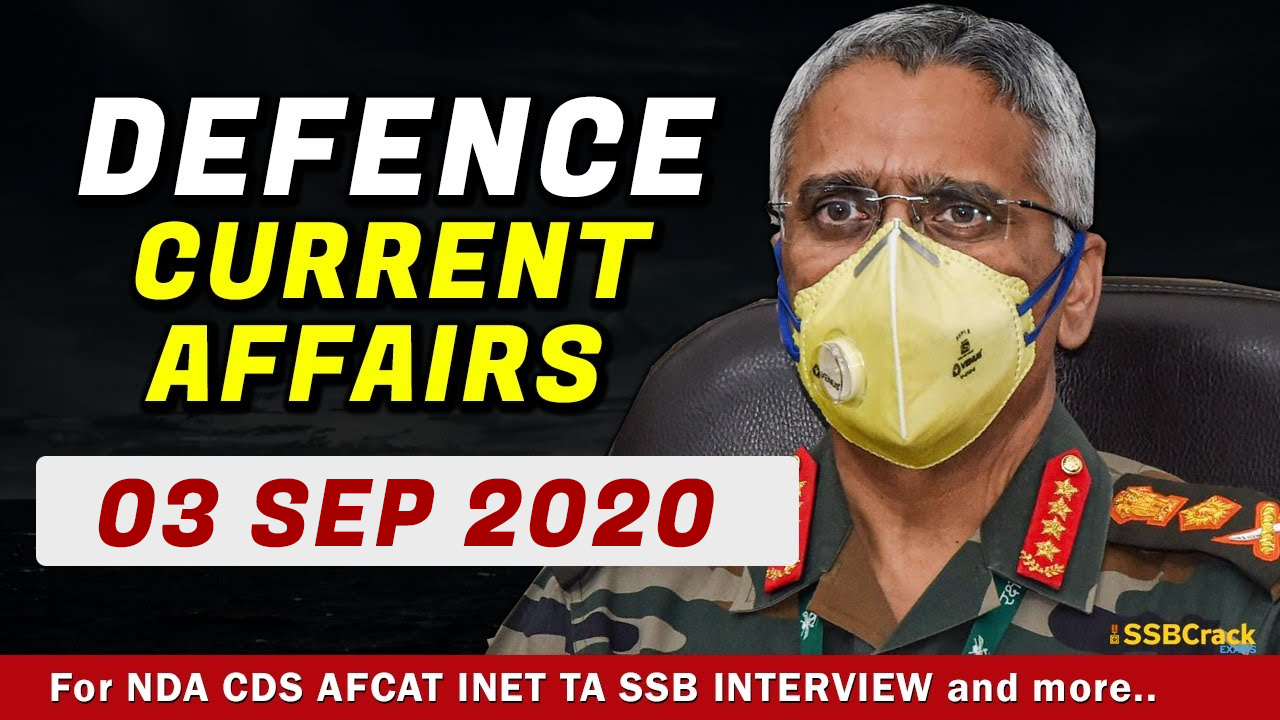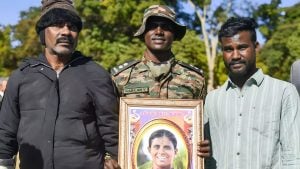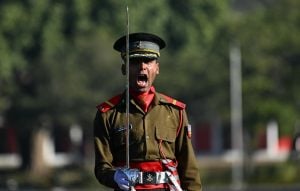Rajnath Singh Reaches Moscow for SCO Meet
- Raksha Mantri Shri Rajnath Singh reached Moscow on a three day visit to Russia. He was received by Major General Bukhteev Yury Nikolaevich at the Airport.
- During this visit, he shall be attending the combined meeting of Defence Ministers of Shanghai Cooperation Organisation (SCO), Collective Security Treaty Organisation (CSTO) & CIS members in commemoration of the 75th Anniversary of victory in the World War II.
- He shall also be meeting Russia’s Defence Minister, General Shoigu to discuss bilateral cooperation and issues of mutual interest. India and Russia are privileged Strategic Partners looking forward to further this partnership during his visit.
Indian Navy to hold mega exercise with Russia near the Andaman and Nicobar Islands
- India pulled out of the Kavkaz military exercise in Russia owing to ongoing tensions with China, but the navies of the two countries would now hold joint manoeuvres near the Andaman and Nicobar Islands on September 4-5, coinciding with defence minister Rajnath Singh’s Moscow visit.
- While Singh was in Moscow in June to participate in the 75th Victory Day celebrations, his September 3-5 visit will focus on SCO meet, besides bilateral consultations with the hosts amid fresh tensions along the LAC. Singh and his Russian counterpart are expected to discuss steps to widen defence partnership including supplies at critical times.
- INDRA NAVY-2020, earlier planned in Vladivostok has been postponed due to Covid-19 pandemic situation. Russian Navy has instead proposed conducting a “non-contact, at sea only” Passage Exercise (PASSEX) to maintain the continuity of engagements between the two Navies.
- Russian Navy ships Admiral Vinogradov (Destroyer), Admiral Tributs (Destroyer) and Boris Butoma (Tanker) with integral helicopters will be visiting the port of Hambantota (Sri Lanka) from August 31 to September 3, before proceeding to Russia, persons familiar with this development informed.
- INDRA NAVY-2020 is planned as PASSEX on September 4-5, during the passage of Russian Navy ships from Hambantota to Malacca Straits in the Bay of Bengal.
- Indian Navy will deploy ships Ranvijay (Destroyer), Sahyadri (Frigate), Kiltan (Corvette) and Shakti (Tanker) with integrated Helicopters. As part of INDRA NAVY-2020, maritime operations such as Flying, Gun Firing on Surface and Aerial Targets, Tracking Exercises and Replenishment at Sea Approaches (RASAPS) are planned.
- India-Russia (INDRA) Exercises between the Army, Navy and Air Force of the two countries have been held since 2005. Joint Tri-Services Exercises ‘INDRA’ are also being held once in two years since 2017. The last INDRA Tri-Services Exercise was held in India in December 2019.
- “INDRA NAVY-2020 will once again showcase the level of friendship, trust and interoperability between Indian Navy and the Russian Navy,” a source said.
- India is keen to develop a partnership with Russia in the Indo-Pacific region based on its principle of inclusive Indo-Pacific construct. Russia on its part wants to steadily enhance its presence in the region spanning Lisbon to Jakarta and seeks Indian presence in its Far-East as Indo-Pacific partnership.
- Interestingly, Indo-Russian exercise could happen almost in the same area where the Malabar exercise involving India, the United States of America and Japan and will take place later this year. Australia too could be invited for the exercise.
“Outdated Agenda Item”: India Calls for Removing J&K Issue From UN
- India at the UN has called for permanently removing the issue of Jammu and Kashmir under the “outdated agenda item” of the “India-Pakistan question” from the Security Council’s agenda, saying such “irrational exuberance” has no takers in a dignified world.
- In a veiled attack on Pakistan, India said that there is a delegation that repeatedly attempts to rebrand itself as contributing to international peace, but unfortunately fails to recognise that it is globally known for being the fountainhead of international terror and the hub for terror syndicates.
- During a virtual informal meeting of the plenary on the annual report of the Security Council, Pakistan’s UN envoy Munir Akram had raked up the issue of Jammu and Kashmir and said that the Security Council has also been found lacking in implementing its own resolutions and decisions on the situation in J&K.
- He added that the Council has met thrice during the last one year to consider the situation in Jammu and Kashmir.
- India, without naming Pakistan, said in a statement on Monday that “there is a delegation that repeatedly attempts to rebrand itself as contributing to international peace, but unfortunately fails to recognise that it is globally known for being the fountainhead of international terror and the hub for terror syndicates.
- “This delegation keeps pushing for discussions on an outdated agenda item in the Council, which for all matter needs to be removed from the Council’s agenda permanently. Such irrational exuberance has no takers in a dignified world,” India said on the ‘Report of the Security Council for 2019’.
- An August 3, 2020 summary statement by the Secretary-General of “matters of which the Security Council is seized” listed ‘The India-Pakistan question’ among those items that have not been considered by the Council at a “formal meeting” during the period from January 1, 2017 to August 1, 2020.
- The agenda item ‘India-Pakistan question’ was first taken up by the Council at a formal meeting on January 6, 1948 and was last considered on November 5, 1965.
- Pakistan, backed by its “all-weather ally” China, has been repeatedly seeking to have a discussion on the issue of Jammu and Kashmir in the Security Council.
- The Council had held closed consultations on the issue of Jammu and Kashmir on August 16 last year after China asked for the “closed consultations” to discuss the matter. That meeting had ended without any outcome.
- In January this year, China, on behalf of Pakistan, had again tried to raise the Kashmir issue under “other matters” during closed consultations in the Security Council Consultations Room. Then too, China stood alone in the Pakistani corner to get the Security Council to focus on the Kashmir issue.
- Last month, as India marked the first anniversary of ending the special status to Jammu and Kashmir and its bifurcation into two union territories — Jammu and Kashmir and Ladakh, Beijing again called for a discussion on the issue of Jammu and Kashmir in the Security Council under ”Any Other Business”.
- All these meetings ended without any outcome, as many other members of the Security Council have underlined that Jammu and Kashmir is a bilateral matter between India and Pakistan.
- India’s Permanent Representative to the UN Ambassador T S Tirumurti had told PTI that contrary to what Pakistan may claim, Islamabad has not been successful in trying to put Jammu and Kashmir on the UN agenda.
- “Frankly, the attempt by Pakistan to try and internationalise, what is a bilateral issue, is nothing new,” he had said.
- Mr Tirumurti had pointed out that contrary to what the Foreign Minister of Pakistan Shah Mehmood Qureshi asserted, “there has been no formal meeting of the Security Council on the India-Pakistan issue even once for the past 55 years, let alone three times!”
- Pakistan, backed by China, has only been able to bring up the issue of Jammu and Kashmir informally and in closed door meetings under what is called ‘Any Other Business”, a category where literally any item can be brought for discussion by anyone. These meetings have no records and there is no outcome.
- Mr Tirumurti had pointed out that even UN Secretary-General Antonio Guterres, in his statement last August, clearly referred to the 1972 bilateral Simla Agreement.
- “Consequently, Pakistan has been singularly unsuccessful in making any inroads into the UN on Jammu and Kashmir. That is the reality,” Mr Tirumurti had said.
India-led G4 nations call out China, ‘coffee club bluff’ on UNSC reforms
- India along with Japan, Germany and Brazil, part of the G4 countries on Monday (August 31) called out China and the ‘coffee group’ bluff on United Nation Security Council (UNSC) reforms as the United Nations decided on the next steps for reforms at the high table. The coffee group of Uniting for Consensus (UFC) group, led by Italy has Pakistan, Turkey as its members and aims to counter bids by G4 countries.
- India shot off two letters, one on a standalone basis and another as part of G4 grouping to United Nations General assembly (UNGA) President highlighting 2 aspects — one backing Common African position, and another and more importantly on those who, on the pretext of negotiations, are stalling reforms — which clearly pointed to China.
- The letter by India’s deputy permanent representative to UN, Ambassador Nagaraj Naidu to the President of the United Nations General assembly (UNGA) Tijjani Muhammad-Bande said, “After more than a decade towards text-based negotiations, the inter-government negotiations process has become a convenient smokescreen to hide behind for those who do not wish to see any reforms in the Security Council.”
- “There is a need to ensure that the inter-governmental negotiations (IGN) process is not held hostage, procedurally and substantially, by those who do not wish to bring about reforms to the security council. Those who demand reform will be forced to look for other ways to finally make progress, including potentially outside the” IGN process.
- Inter-governmental Negotiations framework (IGN) is a group within the United Nations that is looking into UNSC reforms but has made no progress since 2009 when it was formed. The group’s conversation is considered ‘informal’ in nature and thus UNGA rule of procedure doesn’t apply.
- Also, no attempts have been made to put talks into the consolidated text to begin formal negotiations due to resistance by certain countries like China opposed to the expansion of UNSC membership. G4 have also called for ‘urgent need for transparency and application of general assembly’s rules of procedure to the intergovernmental negotiations.’
- On Africa, the letter said, “it is only correct and fair that the growing support expressed for the common African position in the 2 meetings of the IGN earlier this year are captured” in discussions.
- The ‘Common African position’ for UNSC expansion has been stipulated under Ezulwini Consensus and Sirte Declaration, both of which call for at least 2 permanent and 5 to 2 non-permanent UNSC seats to be given to African countries at the high table.
- What is interesting is, the Chinese mission to the UN was quick to react and questioned the need for reforms in ‘haste’. This is when informal negotiations for reforms are underway for the last 10 year, thus bringing out Bejing’s mischief on reforms at UNSC. The Chinese mission in a statement said, “To start text-based negotiations in a haste or to impose a single document is not conducive to building consensus and promoting unity.”
- The Italian mission to UN, chair to the coffee group, also reacted and in a letter called for ‘necessary political will and flexibility’. Both the Chinese letter and the coffee club’s letter made no mention of Common African position.
- Earlier this year, two IGN meetings happened, but the other remaining meetings are yet to happen. The developments of Monday will be part of the UN record and will be raised by countries calling for reforms during the further negotiation process.
Nepal directs its forces to “closely monitor” Indian Army activities at Lipulekh
- Nepal government has directed its forces to “closely monitor” Indian Army’s activities at Lipulekh area amid escalating Indo-China border tension.
- Lipulekh is the tri-junction between India, Nepal and China situated atop the Kalapani Valley in Uttarakhand. Last week, the K.P. Sharma Oli government’s Ministry of Home Affairs issued the directions to the Nepalese Armed Police Force (NAPF) to start the monitoring at the tri-junction.
- The 44 battalion of NAPF was deployed in Lipulekh. It has requested for long range patrols in the forward areas fearing possibilities of escalation between India and China.
- China too, has increased its troop build-up at Lipulekh. There 150 Light Combined Arms Brigade is deployed at the tri-junction. The brigade was moved in last month. They have also reinforced troops in Pala, around 10 km from the border.
- In July, around 1,000 troops were deployed near Pala and a permanent post was built there by China. “A fortnight back, 2,000 more additional troops were deployed at the post,” sources said.
- It was India’s road construction to Lipulekh area at 17,000 feet that had sparked a diplomatic row between India and Nepal with Kathmandu claiming the area as its own. The road was aimed at shortening the travel time for Kailash Mansarovar pilgrims.
- Things so escalated that Nepal brought out a new political map showing the contested area as its own.
- India and China, on the other hand, have been locked in a standoff since May at multiple points along the border. China had changed the status quo on the Line of Actual Control at various places, moving inside Indian territories. India has objected to it and is taking up the matter with China at all levels.
- Last week itself India thwarted China’s provocative military movements to change the status quo at Pangong Tso in Eastern Ladakh. This happened even when China and India were already engaged in diplomatic and military talks to resolve the disputed border issues with several skirmishes reported between the Asian giants.
- In a statement the Indian Army said that on the night of August 29 and August 30, 2020, People’s Liberation Army (PLA) troops violated the previous consensus arrived at during military and diplomatic engagements during the ongoing standoff in Eastern Ladakh and carried out provocative military movements to change the status quo.
- “Indian troops pre-empted this PLA activity on the southern Bank of Pangong Lake and undertook measures to strengthen our positions and thwart Chinese intentions to unilaterally change facts on ground,” the force said.
- Again China attempted to enter into Indian premises on August 31 which was stopped by the Indian forces.
- China has built up troops, artillery and armour in three sectors of the Line of Actual Control – western (Ladakh), middle (Uttarakhand, Himachal) and eastern (Sikkim, Arunachal).
- India too, has increased deployment across the LAC to match China’s military advances. In June, India lost 20 soldiers in Galwan Valley, as its troops were involved in a violent clash with Chinese soldiers, who too lost an unknown number of men.
China seeks to set up military logistic facilities in Pakistan, Sri Lanka & Myanmar
- China is seeking to set up more robust logistics facilities in about a dozen countries, including three in India’s neighbourhood, to allow the PLA to project and sustain military power at greater distances, according to a Pentagon report.
- In addition to the three neighbours of India — Pakistan, Sri Lanka and Myanmar — the other countries where China is considering to base its military logistics and infrastructure facilities are Thailand, Singapore, Indonesia, United Arab Emirates, Kenya, Seychelles, Tanzania, Angola and Tajikistan, the report said on Tuesday.
- In its annual report “Military and Security Developments Involving the People’s Republic of China (PRC) 2020” that was submitted to the US Congress, the Pentagon said these potential Chinese military logistics facilities are in addition to the Chinese military base in Djibouti, which is aimed at supporting naval, air and ground forces projection.
- “A global PLA (People’s Liberation Army) military logistics network could both interfere with US military operations and support offensive operations against the United States as the PRC’s global military objectives evolve,” the Pentagon said in the report.
- China has probably already made overtures to Namibia, Vanuatu, and the Solomon Islands, it said, adding the known focus areas of PLA planning are along the Seal Lines of Communication from China to the Strait of Hormuz, Africa, and the Pacific Islands.
- Similarly, the Pentagon said, Beijing uses the One Belt One Road (OBOR) initiative to support its strategy of national rejuvenation by seeking to expand global transportation and trade linkages to support its development and deepen its economic integration with nations along its periphery and beyond.
- “OBOR projects associated with pipelines and port construction in Pakistan intend to decrease China’s reliance on transporting energy resources through strategic chokepoints, such as the Strait of Malacca,” it said.
- China leverages the OBOR to invest in projects along China’s western and southern periphery to improve stability and diminish threats along its borders, the report said.
- First announced in 2013, China’s OBOR initiative is a signature foreign and economic policy advanced by President Xi Jinping.
- According to the Pentagon, a global PLA military logistics network could both interfere with the US military operations and support offensive operations against the United States as the Chinese global military objectives evolve.
- “Host nations can perform an essential role in regulating the PRC’s military operations as Chinese officials very likely recognise that a stable long-term relationship with the host nation is critical to the success of their military logistics facilities,” it said.
- Chinese military academics assert that bases abroad can enable forward deployment of its forces and support military conflict, diplomatic signalling, political change, bilateral and multilateral cooperation, and training.
- They also suggest that a military logistic network could enable intelligence monitoring of the US military.
- In August 2017, China officially opened its first military base in Djibouti, on the horn of Africa. Chinese Navy Marines are stationed at the base with wheeled armoured vehicles and artillery but are currently dependent on nearby commercial ports due to the lack of a pier on base, the report said.
- Chinese personnel at the facility have interfered with US flights by lasing pilots and flying drones, and China has sought to restrict Djiboutian sovereign airspace over the base. Beyond its base in Djibouti, China is highly likely already considering and planning for additional military logistics facilities to support naval, air, and ground forces projection, the Pentagon report said.
- The PLA’s approach likely includes consideration of many different sites and outreach to many countries, but only some will advance to negotiations for an infrastructure agreement, status of forces or visiting forces agreement, and/or basing agreement, the report added.
REVIEW QUESTIONS
- INDRA NAVY-2020, earlier planned in _____ has been postponed due to Covid-19 pandemic situation.
- Kaliningrad
- Murmansk
- Saint Petersburg
- Vladivostok
ANSWER: D
- Indian Navy will deploy which of these ships with integrated Helicopters in the upcoming INDRA Navy 2020 exercise?
- INS Ranvijay (Destroyer)
- INS Sahyadri (Frigate)
- INS Kiltan (Corvette)
- INS Shakti (Tanker)
- All of the above
ANSWER: E
- Pakistan’s UN envoy:
- Munir Akram
- Syed Itaat Husain
- Maleeha Lodhi
- Masood Khan
ANSWER: A
- India’s Permanent Representative to the UN
- T S Tirumurti
- Nagaraj Naidu
- Samarendranath Sen
- Syed Akbaruddin
ANSWER: A
- India’s deputy permanent representative to UN
- T S Tirumurti
- Nagaraj Naidu
- Samarendranath Sen
- Syed Akbaruddin
ANSWER: B
- President of the United Nations General Assembly (UNGA)
- María Fernanda Espinosa
- Paul-Henri Spaak
- Tijjani Muhammad-Bande
- Rudecindo Ortega
ANSWER: C
- G4 countries do not include
- India
- Japan
- Germany
- Indonesia
ANSWER: D
- In August 2017, China officially opened its first military base in
- Hambantota
- Djibouti
- Chittagong
- Gwadar
ANSWER: B

















